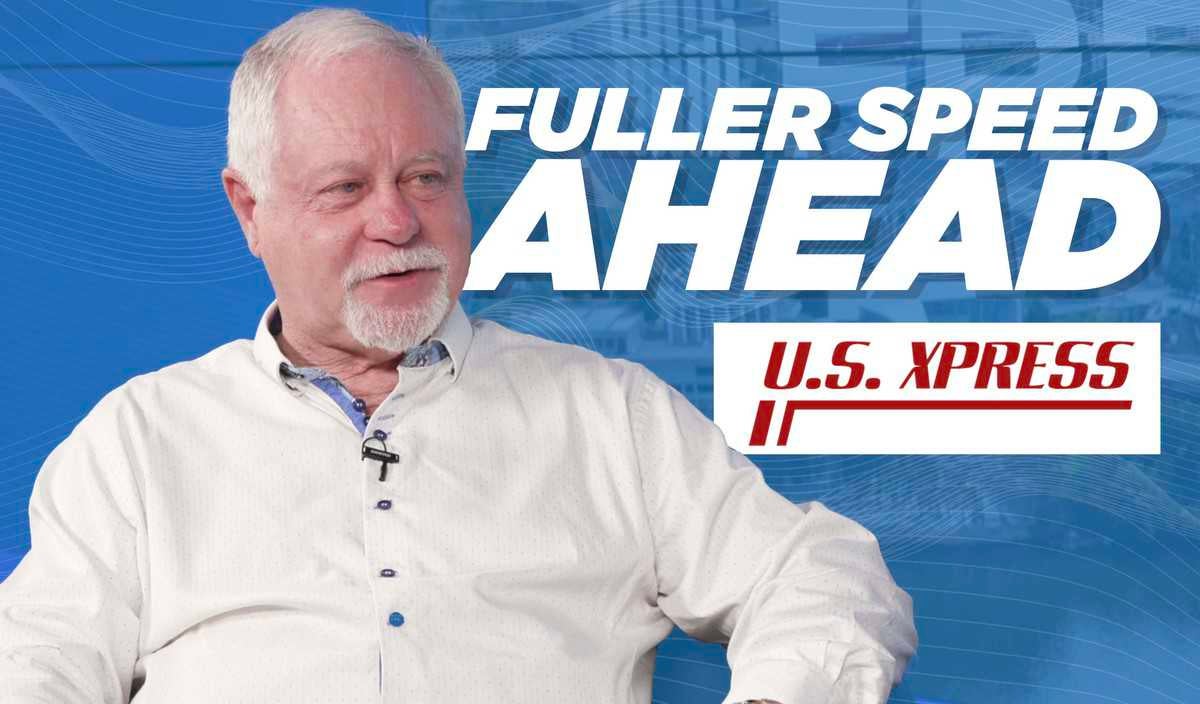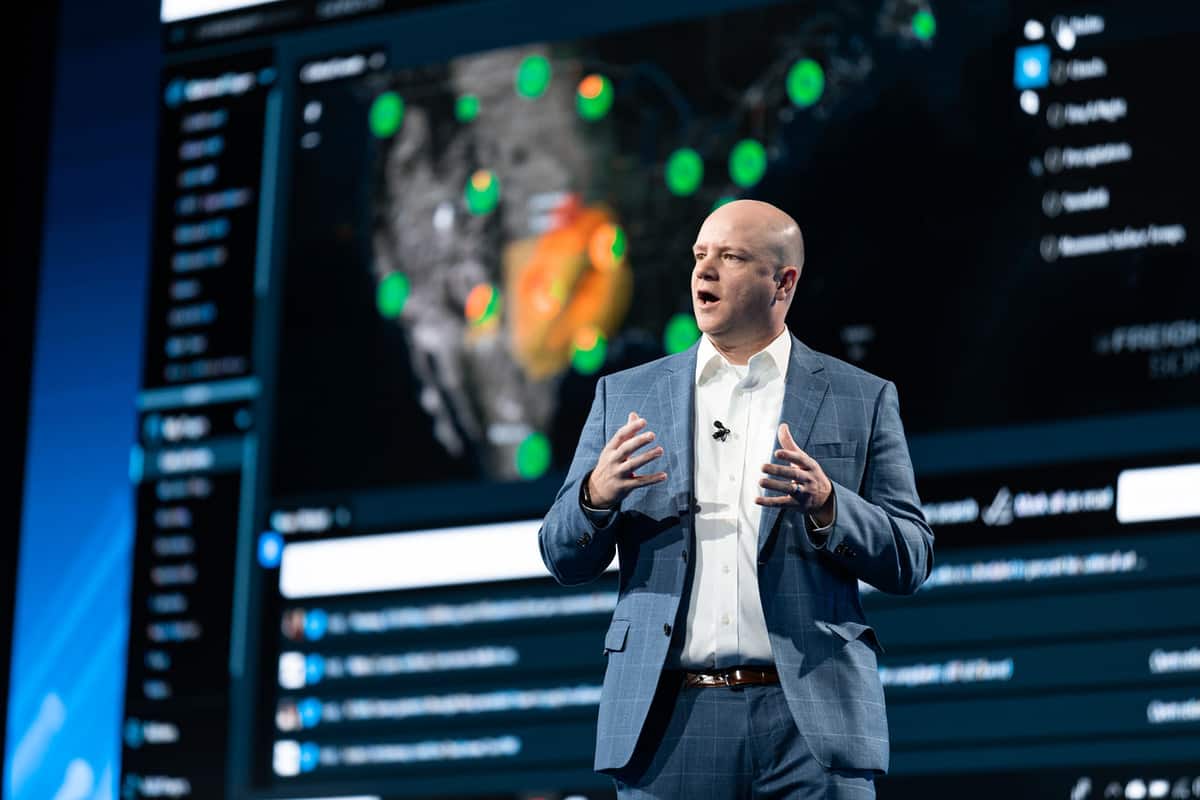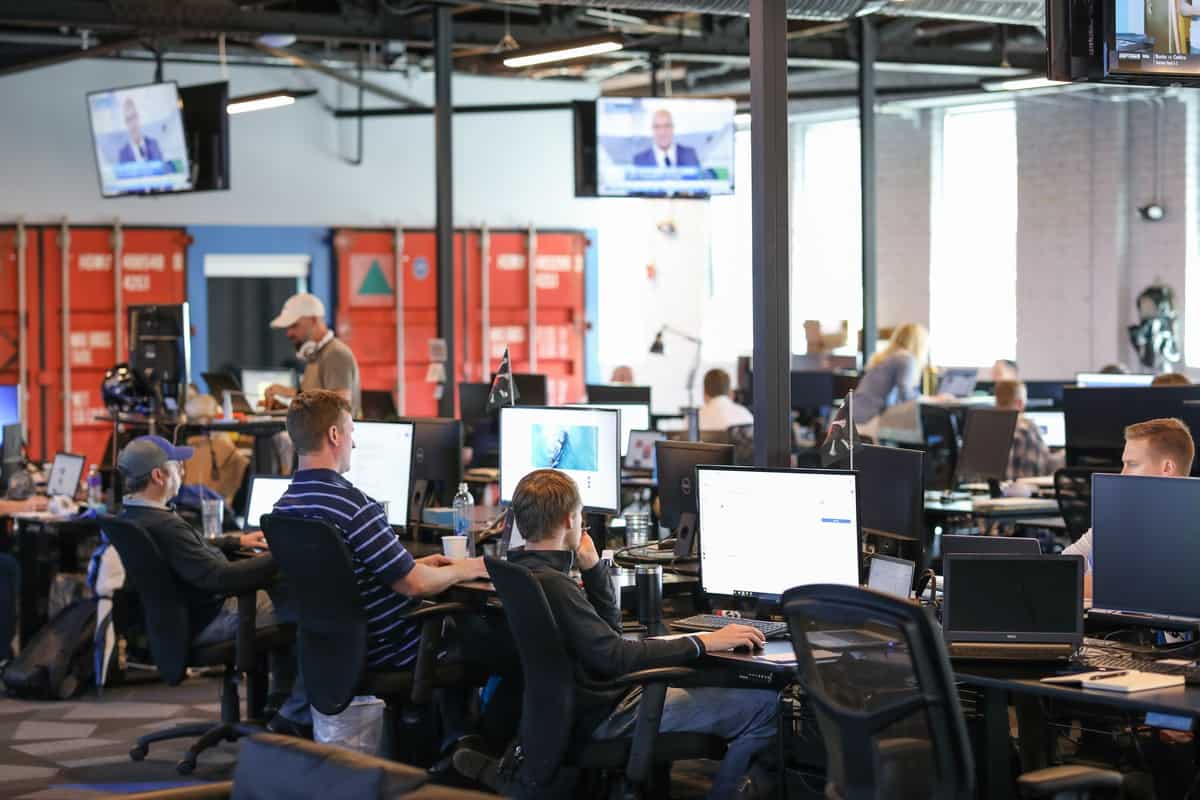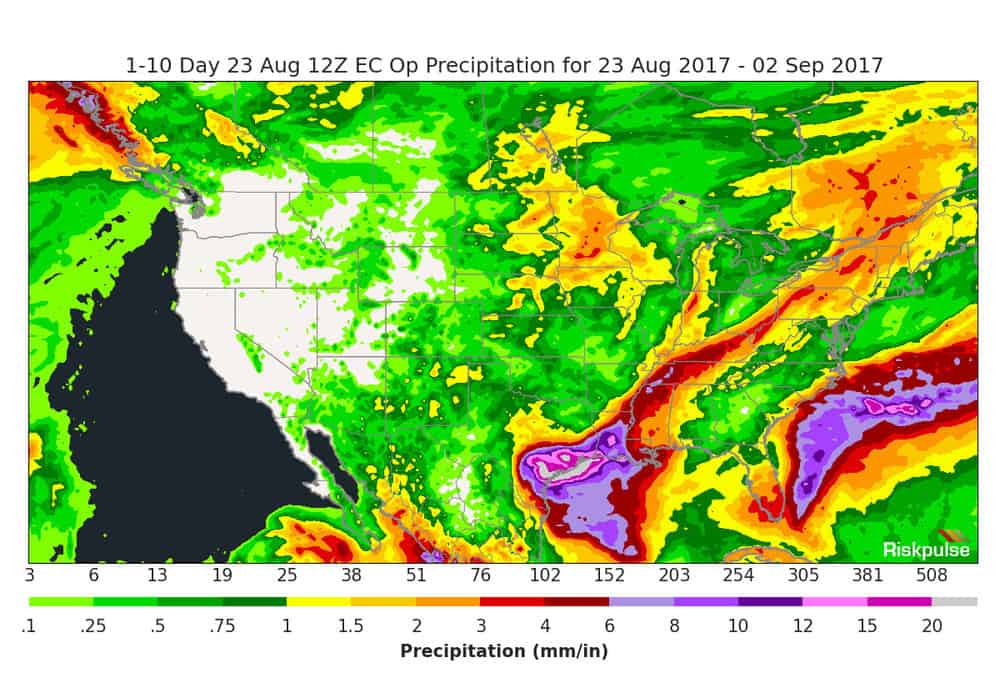FreightWaves is less than four years old, but it has made its mark on the world of freight and continues to innovate in order to bring data, analysis and news to its audiences.
A Media Operator is a podcast that is focused on building media companies for current and prospective media operators. Host Jacob Cohen Donnelley and his guests discuss business models, audience development, products, subscriptions, advertising, commerce, etc.

Recently, FreightWaves founder and CEO Craig Fuller was interviewed by Donnelley for an episode of A Media Operator. This article provides a synopsis of the podcast. Fuller said that Donnelley did perhaps the best interview to-date about the evolution of FreightWaves and what it is all about.
“During our one hour conversation, we talked about how a guy with a trucking background identified a big need for data and information in that space and built a company for it,” Donnelley said. “We dug into how the company has grown over the past couple of years, how it pivoted when COVID-19 hit – from being heavily reliant on physical events to a broadcast-quality TV experience being a top revenue driver. We also talked about how a company needs to have a very specific DNA to be in the data business.”
Donnelley: “Craig,you came to the media business later in your career. What’s your background, and then why did you decide to go into media?
Fuller: “My grandfather started a trucking company, and my father co-founded U.S. Xpress here in Chattanooga,” Fuller answered. “I grew up in trucking, which is a massive industry – $800 billion just in the U.S. So two things that made a huge impression on me were the trucking business in general and U.S. Xpress in particular, and after my father took the company public, I became interested in the financial markets, data, CNBC, Bloomberg, the Wall Street Journal, etc.
“I started working at U.S. Xpress, and I started a division that did on-demand trucking, which was very successful. My brother was going to run my dad’s company and I wanted to do something different. So I started a payments company, which was sold to US Bank in 2012. I left in 2014 and I was trying to figure out what to do. There was an emerging FreightTech sector that venture capital investors were really interested in; the intersection of freight and logistics technology.

“I was doing some consulting and realized that there was an opportunity to create a data business and then a media business inside the space. And I had the original idea while I was watching CNBC. Network hosts kept talking about the Baltic Exchange and index futures, which were a reflection of ocean freight and also of global economic activity. I thought that was interesting and realized there was nothing similar in the trucking industry. So the original idea for FreightWaves was to start a futures market based on trucking. And as we looked at successful futures markets, we realized that to build liquidity they needed news and data services to really serve that industry.”
Donnelley: “So you recognized that there were no really great sources of news and data for the transportation industry. You just decided to build it yourself. Is that right?
Fuller: “Well, we’ve compressed a two-year period into a few seconds, but yes, that’s correct. And as I spoke with those in existing futures markets, with prospective customers, as well as media that covered trucking, I realized that the traditional media outlets didn’t understand financial markets or business news as it related to that industry. There was no equivalent to CNBC or Bloomberg for freight.

(Photo: FreightWaves staff)
“However, there are very capable media outlets covering some of the commodity markets like oil. There is a large ecosystem focused on oil data and new services. There are a number of B2B publications – large tier-one outlets like Bloomberg and Opus that focus specifically on the energy markets. A number of agricultural commodities have a similar infrastructure, but there was nothing really built around trucking freight and freight. And what’s shocking about this is energy production in the United States is about a $400 billion market and trucking is nearly twice that large – north of $725 billion. When we were considering starting what became FreightWaves, I actually went to several traditional trucking media outlets and was turned down. They just couldn’t grasp the product, and neither could several public relations agencies I spoke with.
“So I ended up hiring an editor at one of the traditional trucking publications to blog about trucking and futures. Our ambition at the time was never to be ‘big media.’ And we realized if you only wrote about futures that nobody would read it. He started writing about trucking, and Amazon, which was becoming a logistics company – chartering aircraft, ships and trucks. At the same time, Tesla had rolled out its first model, and announced plans for a semi-truck. And Uber was starting…

“This was an interesting time because a great deal of venture capital was pouring into FreightTech and transportation. Because I had previously raised venture capital and was doing so again, I had good contacts with a number of the traditional venture capital and tech media. We wrote about why these different technologies and the influx of investors were interesting for freight. That’s really what powered the early FreightWaves business. We helped people in the industry understand how technology was impacting the industry and why the stream of venture capital money was coming in. At that time we were getting 40,000 to 50,000 page views a month.
“At that point we were probably in the top 10 of all trucking media outlets. Then Hurricane Harvey hit Houston in mid- to late 2017, causing devastation and disrupting the flow of freight. I had run FEMA disaster logistics efforts at U.S. Xpress. I knew exactly what was going to happen from a logistics standpoint. And we started writing about logistics during and after a hurricane and the traffic exploded. The hurricane articles generated 100,000 page views. I was writing about what drivers and carriers could expect because of the hurricane. We realized that there was a desire in the industry to have news and information that was written from a first-hand perspective, by people who had industry experience.

“The industry expertise gave FreightWaves a really powerful voice to describe the industry in a way that no other media outlet had ever done. And from there, FreightWaves.com has become the number one freight/logistics website in the world. Moreover, FreightWaves has become a multi-media platform – the news, analysis and opinion found on FreightWaves.com and AmericanShipper.com, more than a dozen podcasts that fall under the FreightCasts banner, and FreightWaves TV. There’s more, including Passport, the subscription research/analysis service. FreightWaves.Careers is a job board just for this industry. Trucking Freight Futures is the product that was the genesis for the company, and there is SONAR, FreightWaves software-as-a-service freight forecasting platform.”
Part 2 of this summary of Jacob Cohen Donnelley’s podcast interview of Craig Fuller will be published in the near future.
To listen to the entire podcast now, go here. To subscribe to A Media Operator, follow this link.








